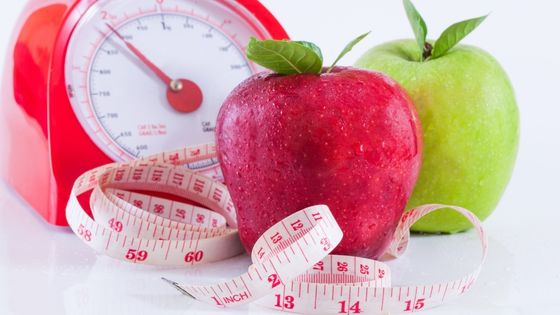Everyone, who needs to lose weight, is looking for that magic bullet that will help them shed those extra pounds quickly and easily. But, the truth is that there is no shortcut solution to weight loss.
If you want to lose weight, you need to make sure you’re doing it the right way. There are a lot of fad diets and quick-fix solutions out there that can do more harm than good.


Here are 12 tips to help you lose weight and keep it off for good. These proven tips from my experience will help you lose weight safely and effectively.
12 Tips To Help You Lose Weight
1. Cut out sugary drinks
If you’re serious about cutting down on calories and dropping a few pounds, start by cutting out sugary drinks. That means no more sodas, energy drinks, or fruit juices. Even so-called “healthy” drinks like sports drinks and flavored waters can be loaded with sugar.
And if you’re really craving something sweet, reach for water with a splash of lemon or lime instead.
One 12-ounce can of soda has about 140 calories and 38 grams of sugar. That’s more than 10% of the daily recommended intake of sugar! If you cut out just one can of soda per day, you could lose up to 5 pounds in a year.
2. Avoid processed foods:
Processed foods are often high in calories and low in nutrients, which can lead to weight gain. These foods are linked to weight gain and obesity. They are also associated with chronic diseases such as heart disease, type 2 diabetes, and cancer.
Unfortunately, Most of the food we eat today is processed to some degree.
However, over-processed foods are those that have been stripped of their nutrients and had chemicals added to them. Instead, focus on eating whole, unprocessed foods like fruits, vegetables, and lean protein.
3. Get at least 30 minutes of moderate exercise every day
You can do this all at once, or in smaller chunks of time throughout the day. Just about any activity that gets your heart pumping and makes you breathe harder counts as a moderate-intensity aerobic activity.
4. Don’t skip meals (especially breakfast)
Skipping meals, especially breakfast, can actually make it harder to lose weight.
When you skip a meal, your body goes into “survival mode” and starts hoarding calories. That means that when you do eat, your body is more likely to store those calories as fat instead of burning them for energy.
5. Avoid eating late at night before bedtime
While it may be tempting to reach for a snack before bed, doing so can sabotage your weight loss efforts.
That’s because late-night eating can lead to weight gain in several ways. First, it increases the likelihood that you’ll consume more calories than you need. And second, it can disrupt your sleep, which can lead to making poor food choices the next day.
6. Make sure you’re getting enough sleep each night
A lack of sleep can lead to weight gain, as it can increase levels of the hormone ghrelin, which stimulates appetite.
Additionally, sleep deprivation can lead to cravings for unhealthy foods and decreased motivation to exercise. To ensure you’re getting enough shut-eye, aim for 6-7 hours of sleep per night.
7. Drink more water, especially in the morning
When you drink water, your body uses some of it to flush out toxins and waste. This process takes energy, which means your body has to burn calories to do it. Drinking water also helps keep you feeling full, so you’re less likely to overeat.
And if you drink it first thing in the morning, you’ll jumpstart your metabolism for the day.
So if you’re serious about losing weight, make sure you’re drinking plenty of water – especially in the morning.
8. Cut down on high-fat foods
A high-fat diet can lead to weight gain and obesity. It is important to eat a healthy diet and exercise regularly to maintain a healthy weight. Cutting down on high-fat foods can help you lose weight and improve your health.
9. Eat more fiber-rich foods such as fruits and vegetables
Fiber helps to keep you feeling full after eating, so you’re less likely to overeat or snack between meals. Fiber also slows down the absorption of sugar into your bloodstream, which helps to regulate your blood sugar levels and avoid spikes in insulin that can lead to fat storage.
In addition, fiber-rich foods tend to be lower in calories and fat than other types of food, so they can help you cut down on calories without feeling deprived. So if you’re looking to lose weight, aim for at least 25 grams of fiber per day from sources such as fruits, vegetables, whole grains, and legumes.
10. Eat green vegetables
Green vegetables are an important part of any weight-loss plan. Not only are they low in calories, but they’re also packed with nutrients that your body needs to be healthy.
So, make sure to include plenty of green vegetables in your diet if you’re trying to lose weight.
11. Eat slowly and enjoy your food
When you take the time to savor your meal, you’ll be less likely to overeat. You’ll also be more likely to register when you’re full, so you won’t continue eating just because the food is there.
12. Avoid oily food
Oily food is high in calories and fat, which can lead to weight gain. Eating less oily food can help you lose weight and improve your health.
Instead, focus on eating healthy foods that are low in calories and fat, such as fruits, vegetables, and lean protein.
FAQ
Is a keto diet good for weight loss?
Yes! it can be good for weight loss, but it depends on a few factors. You need to make sure that you are eating healthy fats and proteins.
You also need to make sure that you are getting enough fiber. Third, you need to make sure that you are staying hydrated.
Can I lose 10 pounds in 3 days?
Losing 10 pounds in 3 days is possible, but it is dangerous. While you may be able to lose weight quickly, it is not healthy or sustainable. Losing weight too quickly can lead to dehydration, electrolyte imbalances, and other health problems.
The best way is to lose weight gradually and under the supervision of a healthcare professional.
How much weight can you lose in a week?
The amount of weight you lose in a week depends on several factors, including your diet, exercise routine, and body type.
The average person can expect to lose 1-2 pounds per week by following a healthy diet and exercising regularly. However, if you are significantly overweight or have a lot of weight to lose, you may be able to lose more than 2 pounds per week in the beginning.
Conclusion
Lastly, don’t try to lose weight too quickly. Rapid weight loss is often not sustainable and can lead to health problems down the road. Aim for a slow and steady rate of weight loss instead.









